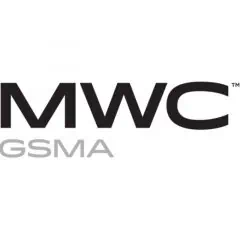In our latest MVNO Academy webinar, experts from PortaOne and Pharos came together to reveal how MVNOs and other service providers can leverage online charging with policy control to attract new customers with crucial free apps and services – without the risk of revenue leakage. Our hosts also dove into some innovative new ways service providers can enable strategic differentiation, highly tailored products, and more in order to stand out from their competitors and reach their specific market.
Watch the full webinar recording below to join Klaus Haertel, director of strategic alliances and channel sales with PortaOne and Owen Griffith, chief operating officer of South Africa-based telco software provider Pharos, as they break down all the insights. Or, read on for a quick summary of all the highlights of this enlightening event.

Webinar Summary & Highlights
Whether you are one of the many emerging MVNOs that are part of the industry surge in Africa or you are a traditional CSP looking to differentiate your product and protect your revenue, policy control is as critical to your operations as cockpit controls are to an airplane pilot: it is the crucial connector between the pilot (your billing and charging system), the packet gateway (the plane), and the passengers (your subscribers). With this analogy, webinar co-host Owen Griffith sets the stage to explain why online charging is often misunderstood, and to walk you through real-world case studies of African MVNOs that have leveraged this technology to create innovative products uniquely tailored to fit a specific market need.
Why the African mobile market is different
Africa’s telecommunications sector is unique within the global industry. Unlike in Europe and the US, where fixed-line infrastructure is prevalent, Africa experiences low fixed-line penetration. Consequently, mobile networks quickly gain dominance, driven by a latent demand for communication services. This trend underscores the importance of understanding the local market dynamics rather than assuming a one-size-fits-all approach.
One key aspect is the prevalence of prepaid mobile services. This model necessitates real-time charging systems to cater to the needs of a market where postpaid billing is less common. The challenges associated with real-time billing underscore the need for innovative solutions tailored to the African context.
Along with limited fixed-line infrastructure, Africa’s telecommunications landscape is characterized by a predominance of prepaid services, and the widespread use of feature phones. Mobile money services are popular, catering to a youthful demographic with high feature phone usage. Understanding and leveraging these nuances are essential for success in the African market, where traditional approaches may not translate effectively.
MVNO strategy spotlight: Navigating success and partnerships in telecom
In a dynamic conversation, Owen and Klaus move on to shed light on some essential considerations for aspiring MVNOs, both in Africa and in the global community. Highlighting the importance of market understanding and differentiation, they emphasize the need for thorough commercial groundwork before delving into technical implementations. The discussion unveils the strategic significance of MVNOs as testing grounds for innovative offerings, with operators leveraging them to explore new markets and product niches. With insights into successful MVNO models and the potential for acquisition, they offer invaluable perspectives on navigating the complex telecom landscape.
A case study for unveiling the ”Three Golden Rules” of MVNO success
Next, Owen discusses the challenges faced by MVNOs, citing examples like Red Bull Connect in South Africa and Virgin Mobile in the USA. The failure of these initiatives highlight the importance of adhering to the ”three golden rules of an MVNO”:
- Leverage a strong existing brand.
- Target a specific market segment.
- And, finally, offer a compelling value proposition to that market segment.
If you fail to meet these criteria as a new MVNO, you will significantly reduce your chances of success – much like Red Bull Connect did.
What policy control and online charging actually do
Online charging, often referred to as OCS, involves real-time authorization and credit allocation for services that require a real-time interface feed and rating function. Policy control, meanwhile, governs product behavior and data session behavior, specifically for mobile data sessions. It allows administrators to define rules for managing data sessions based on conditions and triggers received from the network or charging system. Policy control enables various critical controls, such as restricting bit rates, implementing fair usage policies, and managing zero-rated traffic to prevent fraud. Both online charging and policy control play crucial roles in managing network resources efficiently and ensuring a seamless user experience.
Highlights from the interactive live Q&A
Q: What are the financial considerations and projections, including initial investment, operating costs, revenue streams, and profitability timelines, for launching and sustaining an MVNO business?
A: “It really starts with the conversation with the MNO and that wholesale agreement,” says Owen. In his own experience, MVNOs he has observed in this space took several iterations to reach the point where they could negotiate effectively with their host network. “Often there is just not enough meat on the bone and the MVNOs are not incentivized enough,” he says.
Klaus notes that, with cloud technologies becoming more common, initial investments and ongoing operational costs have come down over the years. Even as recently as five years ago, an MVNO might have faced upfront capital expenses in the millions for certain software licenses, hardware, and so on. “Nowadays with software services and cloud technologies, you can do a lot with a lot less,” he says. “You don’t have to do those massive upfront capex investments, which could take years to recover and maybe never recover,” adds Owen. ”Companies like PortaOne and Pharos have made it possible to get into the space without having to spend a huge amount of money upfront.”
Q: What regulatory requirements and licenses are necessary to operate an MVNO in Africa and the USA?
A: Klaus notes that the answer to that question will change depending on the country. However, he notes, “there’s always going to be some telco license needed.” In the US, for instance, you have to go through an FCC process; in Nigeria, the government recently liberalized the telecoms market to allow operators to apply for an MVNO license.
But one area where MVNOs will not generally need to pay is in spectrum licenses. “The spectrum license is held by the host MNO, and those are very pricey,” explains Owen.
If you would like to learn more about how online charging and policy control could benefit your MVNO project, or if you have an idea for a future topic for our MVNO Academy, get in touch with the PortaOne team. We’re always happy to chat.

















